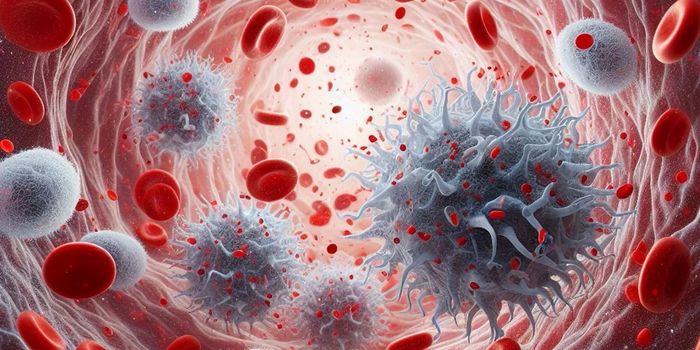New hope for ovarian cancer
Ovarian cancer affects roughly 1 in 78 women and although survival rates are high (over 90%) with early diagnosis, we currently do not have a way to test for early detection and thus early diagnosis only occurs in around 20% of cases. That means that most women don’t discover their disease until it has already started spreading, making it much harder to treat. But new research focusing on high-grade serous ovarian cancer, which is the most common form of ovarian cancer, offers hope for alternative treatments.
The research was published recently in the journal Molecular Cancer Research and suggests that blocking a particular enzyme called isocitrate dehydrogenase 1 (IDH1) could deter the proliferation of high-grade serous ovarian cancer cells, essentially by putting the cancer cells into early senescence and making it impossible for them to grow and multiply.
"One of the biggest problems of cancer cells," says senior study author Katherine M. Aird Ph.D., assistant professor of cellular and molecular physiology at Penn State College of Medicine in Hershey, PA, "is they can grow forever without stimulus. By inducing senescence, the cells can no longer divide and grow," she adds.
Dr. Aird and her colleagues arrived at this conclusion after analyzing the ways that healthy and cancerous fallopian tube cells use sugar. Implementing mass spectrometry, the team found that while the cancer cells tended to use sugar in the citric acid cycle, the healthy cells usually converted sugar to lactate through aerobic glycolysis.
This is exactly why many cancer treatments target glycolysis – but in the process, these treatments risk damaging healthy cells as well. The IDH1 enzyme, on the other hand, is critical to the citric acid cycle, and blocking it could provide alternative treatment methods that specifically target cancer cells.
As Medical News Today reports, the need for new treatments can target later stages of the ovarian cancer is of utmost urgency. “Around 70% of those with high-grade serous ovarian cancer will experience relapse because the cancer has a tendency to develop resistance to chemotherapy. There is an urgent need for new approaches to treating this disease.”
Dr. Aird hopes this finding will lead to those alternative treatments, saying "One of our long term goals is to try and repurpose this already approved drug as a treatment for this form of ovarian cancer.” According to her, the FDA has already approved a drug that specifically targets the IDH1 enzyme.
Sources: Medical News Today, Molecular Cancer Research









